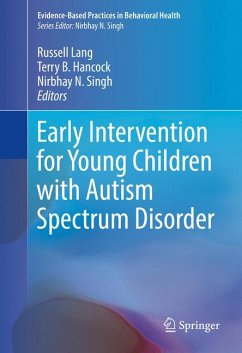
Treating Trichotillomania (eBook, PDF)
Cognitive-Behavioral Therapy for Hairpulling and Related Problems
Versandkostenfrei!
Sofort per Download lieferbar
68,95 €
inkl. MwSt.
Weitere Ausgaben:

PAYBACK Punkte
34 °P sammeln!
This book is an accessible, clinically valid reference to treating body-focused repetitive behavior disorders. It first carefully defines Trichotillomania (TTM), differentiating the disorder from other conditions such as obsessive-compulsive disorder (OCD). Coverage then reviews the varied clinical forms TTM can take and sets out its diagnostic criteria. The book also helps practitioners in designing the most appropriate course of treatment across the developmental spectrum, from toddlers to elders.Treating Trichotillomania offers a comprehensive discussion of assessment and treatment methods ...
This book is an accessible, clinically valid reference to treating body-focused repetitive behavior disorders. It first carefully defines Trichotillomania (TTM), differentiating the disorder from other conditions such as obsessive-compulsive disorder (OCD). Coverage then reviews the varied clinical forms TTM can take and sets out its diagnostic criteria. The book also helps practitioners in designing the most appropriate course of treatment across the developmental spectrum, from toddlers to elders.
Treating Trichotillomania offers a comprehensive discussion of assessment and treatment methods as well as details key elements of treatment, including awareness training, habit reversal, and maintenance techniques. It also provides helpful ideas for treating clients with other disorders in addition to TTM and provides answers to a client's or family's most frequently asked questions.
Treating Trichotillomania offers a comprehensive discussion of assessment and treatment methods as well as details key elements of treatment, including awareness training, habit reversal, and maintenance techniques. It also provides helpful ideas for treating clients with other disorders in addition to TTM and provides answers to a client's or family's most frequently asked questions.
Dieser Download kann aus rechtlichen Gründen nur mit Rechnungsadresse in A, B, BG, CY, CZ, D, DK, EW, E, FIN, F, GR, HR, H, IRL, I, LT, L, LR, M, NL, PL, P, R, S, SLO, SK ausgeliefert werden.













